Netanyahu Dismisses Threat From Lebanon's Hezbollah
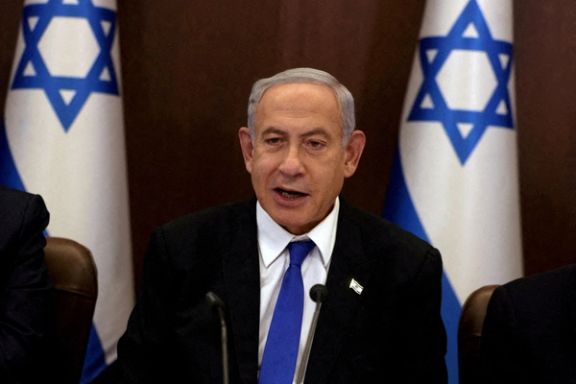
Israel's army would rally and unify in the face of any threats by the Lebanese Iran-backed Hezbollah, Israeli Prime Minister Benjamin Netanyahu said on Sunday.

Israel's army would rally and unify in the face of any threats by the Lebanese Iran-backed Hezbollah, Israeli Prime Minister Benjamin Netanyahu said on Sunday.
Netanyahu made the remarks during a cabinet meeting, amid growing tensions along Israel's northern border with Lebanon and as the country's military faces threats to its cohesion over the government's attempts to weaken the judiciary.
Since Israel’s current political crisis began earlier this year, Iran and its militant proxies in the region have rallied to take advantage of any weaknesses. Large-scale military clashes took place between the Palestinian Islamic Jihad, a Hezbollah ally, and Israel in early April.
“As for (Hezbollah leader Hassan) Nasrallah's bunker threats, we are not impressed by them. On the day we are tested, he will find us standing together, shoulder to shoulder, and even Nasrallah knows that neither he nor Lebanon should put us to the that test.”
Reuters reported last week that Iranian military and security officials recently held a meeting with Hezbollah and Palestinian Hamas to see how they can take advantage of Israel’s internal problems. The Revolutionary Guard’s (IRGC) Quds Force attended the three-hour meeting, as Israel’s foes see an opportunity in Israel’s political turmoil related to Netanyahu’s judicial reforms.
Iranian government media and officials have been highlighting large protests in Israel against the judicial reforms by heralding the imminent collapse of “the Zionist entity.” They have also been openly encouraging Palestinian and other militants to intensify their attacks inside Israel.
With reporting by AP, Reuters
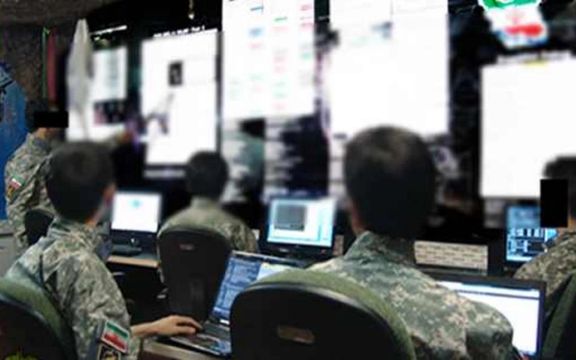
Israel’s Shin Bet internal intelligence agency says it has thwarted a phishing campaign by Iran targeting primarily Israeli civil servants and researchers.
On Sunday, the agency disclosed some information about the LinkedIn-based campaign to infect the victims’ computers with malicious software and gather information.
The Iranians created false profiles posing as real Israeli citizens with whom the targets may have had personal or professional interactions. Then, they initiated conversations on LinkedIn and continued correspondence through email, according to the agency.
During their correspondence, the impostors would send an invitation to a conference or other digital files of interest, such as a study or article. Clicking on these links would then infect the recipient's computer with a malicious file that would grant the Iranian entity comprehensive access to the compromised system, enabling remote takeover and complete exposure of the information contained within.
Israeli-based news channel i24NEWS cited Shin Bet as noting that he hackers originally compiled the necessary information for the LinkedIn profiles from social media networks, allowing them to establish a connection and then engage in correspondence tailored to the target's specific interests.
The campaign is just the latest in a series of similar operations by the regime’s cyber agents against Tehran’s archnemesis Israel. Iran-sponsored cyberspies have recently boosted their techniques, using fake personas of real people to add credibility to the phishing emails designed to deliver malware.
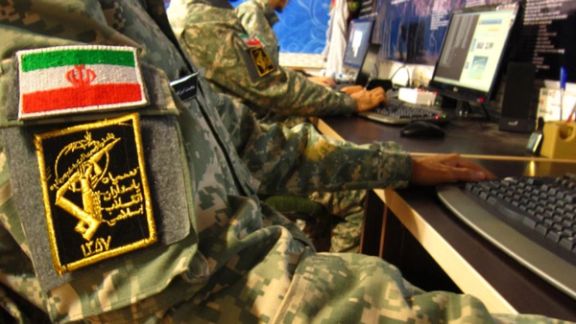
Mehdi Saremifar, a Canada-based sci-tech journalist, told Iran International on Sunday that the cyber-attacks by the Iranian regime’s hackers during the past several years indicate that several organizations or institutions in Iran are coordinating their efforts for such campaigns. He says the country’s intelligence ministry and the cyber army of the Revolutionary Guards are among the units involved in the regime’s warfare in cyberspace.
According to Saremifar, Iran’s attacks are mainly aimed at phishing and getting ransom as well as some for military intel, a case of which led to a drone attack against an oil tanker associated with an Israeli billionaire off the coast of Oman in November 2022.
According to a 2022 report by Security firm Proofpoint, Iran-aligned agents deployed a social engineering impersonation technique, informally called Multi-Persona Impersonation, in mid-2022 in which the threat actor uses at least two stolen or hijacked personas on a single email thread to convince targets of the legitimacy of the campaign. The personas used are real people that the target knows and trusts.
Last August, Meta, formerly the Facebook company, removed at least two Iranian cyberespionage groups that were targeting academics, activists, journalists and other victims. Also in 2022, Iranian hackers -- named Sharp Boys -- targeted several travel booking sites of an Israeli company and stolen personal information of more than 300,000 Israelis.
Earlier in the year, researchers at CheckPoint's Incident Response Team said an Iran-linked group calling itself Moneybird has deployed a ransomware against Israeli organizations.
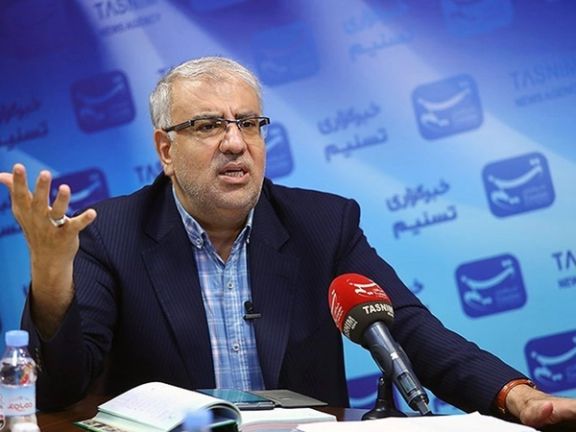
Iran’s oil minister says Tehran will pursue its rights over a disputed maritime field in the western tip of the Persian Gulf shared with Kuwait and Saudi Arabia if they shun cooperation.
“If there is no willingness to cooperate, Iran will pursue its rights and benefits, including the exploitation and exploration of the Arash gas field, and will not tolerate any violation of its rights,” Javad Owji said on Sunday, according to the Oil Ministry’s SHANA news agency.
Called Arash in Iran and Durra or Dorra by Saudi Arabia and Kuwait -- the offshore field was discovered in 1967 and is estimated to have a total proven reserves of around 310 million barrels of oil and 20 trillion cubic feet of gas.
Kuwait and Saudi Arabia insist that Iran has no right over the field, claiming “exclusive” right, while Iran says any development without its consent is “illegal” according to international laws as it claims 40 percent of the field located in its territorial waters.
Kuwait's oil minister Saad Al Barrak told SkyNews Arabia July 27 that his country will start drilling and begin production at the gas field without waiting for border demarcation with Iran, reiterating the two Arab countries’ position that Iran must validate its claim to the field by demarcating its own maritime borders first.
As controversies surrounding the case are escalating, the disputed maritime field in the Persian Gulf has become a litmus test for the recent détente between Tehran and Riyadh.
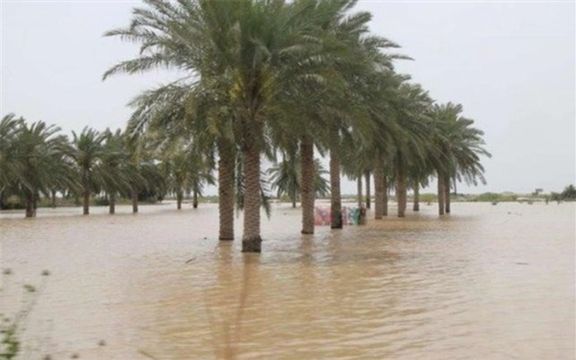
Heavy rainfall and storms in Iran’s Sistan-Baluchestan have caused a spate of flash floods, dealing a heavy blow to the infrastructure of the southeastern province.
Recent monsoon rains in dozens of cities have led to flooding of local rivers, closure of at least 42 roads and damage to hundreds of hectares of palm groves – an important source of income in the poor and otherwise arid region.
The deluge from the Kajou River in the south of the province has been the biggest during the monsoon seasons of the last 20 years, says the governor of the city of Qasr-e Qand Hashem Zehi. Last summer, monsoon rains and floods wreaked havoc in many provinces, with dozens dead or missing, amid the worst annual drought in recent memory.
Ghanbar Narui, an agricultural official in the district of Fanouj, said Sunday that 900 palm trees with dates have been uprooted, leading to a heavy loss in the date harvest in 350 hectares of palm groves in the region. The livelihood of the residents depends on the date trade. According to the official, Fanouj has a total of 2,300 hectares of palm groves, out of which 1,900 hectares produce dates.
Sistan and Baluchestan is the poorest province of Iran with a population of around 4 million, including 700,000 Afghan nationals.
During the past years, this region has experienced many crises, including shortage of fuel, bread, and drinking water, as well as drought, widespread unemployment and increasing poverty.
In the recent popular protests following the death in custody of Mahsa Amini, around 120 civilians were killed by security forces in the province, the highest number of victims among 31 provinces.
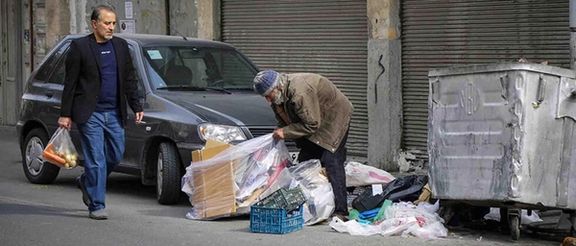
Iranian lawmaker Gholamreza Nouri Ghezeljeh has warned that Iran’s economic situation is alarming, and the people have been struggling in recent years to survive.
Ghezeljeh told reporters in Tehran that the economic crisis is the outcome of inaction by parliament over the country’s development plans. This comes while some experts say funds allocated to development plans are often spent on propaganda or military projects.
The lawmaker also attributed part of the problem to the fact that Iranian officials including presidents lack long-term vision. For the same reason, he said, only 30 percent of six development plans since the establishment of the Islamic Republic have been implemented.
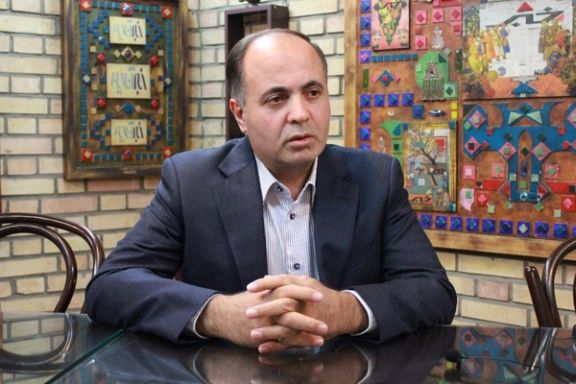
Meanwhile, another Iranian lawmaker, Alireza Mobaleghi, said in an unprecedented statement on Thursday that officials, including members of parliament, are ashamed and embarrassed for the difficult economic situation and have no convincing answers to the people’s grievances.
He added that the embarrassment is more serious for those like him who represent the people in the underprivileged parts of the country like his constituency in Kouhdasht in southwest Iran.
Iran’s struggling economy has faced a worsening crisis since 2018 when the United States withdrew from the JCPOA nuclear accord and imposed sanctions. Annual inflation is above 50 percent and ordinary salaries are less than half of what families need for basic necessities.
But no politician within the regime dares to criticize Supreme Leader Ali Khamenei who is the top decision maker in matters of security and foreign policy and ultimately responsible for policies that have isolated the country.
The lawmaker further charged that some government managers and decision makers are not efficient enough for their jobs and that is what causes part of the problem. There are individuals who might be good speakers and know a lot of theories, but they cannot do their job necessarily.
“There is no justification for using such individuals in the government although some of them might have good academic credentials,” he said. He added that Iran is involved in a full-fledged economic war, and it needs highly capable officials.
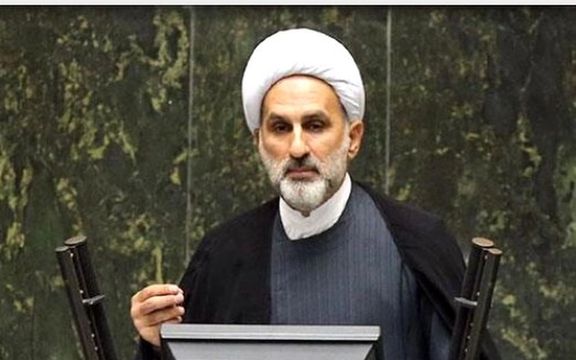
Mobaleghi maintained that some members of parliament have presented serious demands to the government to change its senior and mid-ranking managers in a bid to improve the country’s situation. He further warned that the parliament might consider impeaching some of Iran’s cabinet ministers.
Despite the problems, some hardliner lawmakers such as Fereidoun Abbasi do not seem to take the issue seriously. Abbasi said on Thursday, “Iranians are potentially rich, but if their wealth does not positively impact the country’s economy, that is not the government’s fault. It is something to do with the ongoing economic war.”
Economic war is Iranian officials’ jargon for US sanctions against the Islamic Republic government.
In fact, nepotism, corruption and political considerations play a vital role in the economy, which is mostly controlled by the government. Conditions for private investments are not encouraging and many have taken their capital abroad. Official statements show that tens of billions of dollars have been taken out in the past decade.
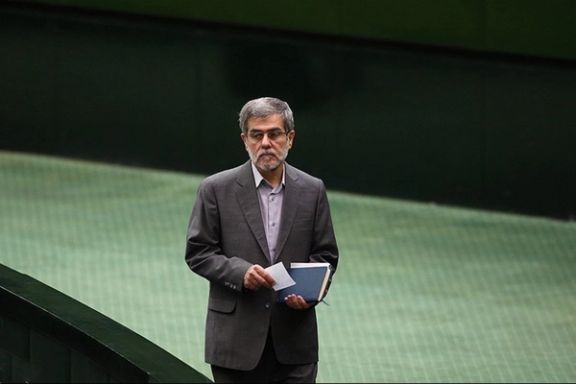
Abbasi charged that “the lawmakers who speak about economic shortcomings in their constituencies and state that the people are poor and underprivileged are simply trying to justify their inaction.
The hardliner politician added, “Instead of highlighting the country’s problems, lawmakers should strive to solve them,” shifting the blame from systemic problems to members of parliament.
Meanwhile, in an interview with Khabar Online website, Labor market Expert Hamid Haj Esmaili criticized government officials for providing false statistics to the media to pretend that they have tackled problems such as unemployment and inflation. He said there are serious conflicts between the figures presented by state officials and statistics worked out by specialised agencies.
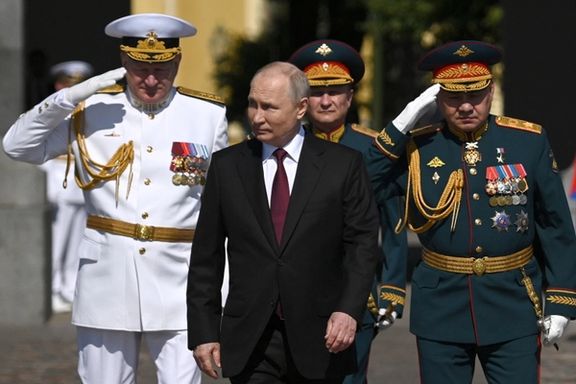
Iran’s navy commander Admiral Shahram Irani took part in Russia’s annual Navy Day ceremonies where President Vladimir Putin reviewed a parade of warships.
Adm. Irani is the commander of the traditional navy as distinct from the Revolutionary Guard’s naval forces. The Iranian gesture showed that Tehran is the only solid ally for Moscow amid the invasion of Ukraine.
Iran has delivered hundreds of Kamikaze drones to Russia since mid-2022 that have been extensively used to target cities and infrastructures. European powers and the United States have warned Iran to stop the deliveries and refrain from supplying other weapons. Russia reportedly is seeking Iranian ballistic missiles.
Forty-five ships, submarines and other vessels took part in Russia's annual Navy Day event, a traditional show of military might which takes place in the Gulf of Finland and on the River Neva in St Petersburg. Around 3,000 navy personnel also took part in a parade on land, the Kremlin said.
However, the Russian and Iranian navies are from being able to challenge Western, especially the American navy. The IRGC navy harasses commercial vessels in the Persian Gulf occasionally, but lately the United States has boosted its naval and air power in the region to deter Tehran.
Iran has been negotiating with Western powers over its controversial nuclear program since April 2021, but has refused a compromise draft agreement submitted by the European Union negotiators last August. Since then, it has intensified its military and political cooperations with Russia.